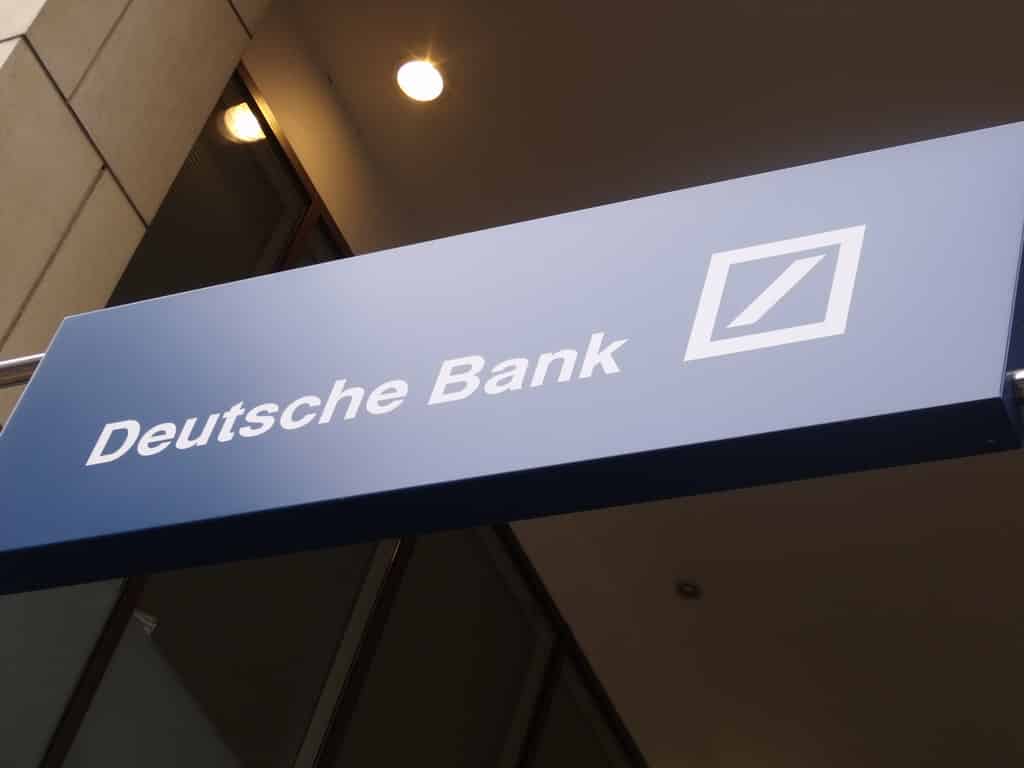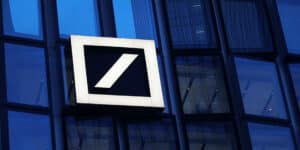Deutsche Bank Review part 1
that will be the topic of today’s article.
Nothing written here should be considered as financial advice, nor a solicitation to invest.
In general, the banks are expensive and inflexible for most people, compared to the alternatives, which we can introduce, despite the positives that will be mentioned here.
Introduction
Germany has a non-discriminatory, well-developed financial services infrastructure. While corporate financing through the capital markets is on the rise, Germany’s financial system remains largely bank-based, with bank loans serving as the predominant form of financing for firms, especially the small and medium-sized enterprises of Germany’s famed Mittelstand.

The universal banking system in Germany allows more than 36,000 bank branches in the country not only to accept deposits and issue loans to customers but also to trade in securities. Credit is available at market rates to both domestic and foreign investors, and a variety of lending instruments are available.
The traditional German system of cross-shareholding between banks and industry, as well as the high level of bank borrowing compared to equity financing, has allowed German banks to exert significant influence on the industry in the past.
Germany has a modern banking sector, but it is considered to be overburdened by banks, as evidenced by continued consolidation and low-profit margins. The country’s so-called “three-tier” banking system consists of private commercial banks, cooperative banks, and state-owned banks (savings banks, or Sparkassen, and regional state-owned banks, or Landesbanken).
The profitability of German banks is under increasing pressure given very low-interest rates, high structure costs, and increased compliance costs as a result of new regulation and supervision.
Private banks control approximately 30% of the market, while state savings banks, partly affiliated with state and local governments, account for 50% of banking operations, and cooperative banks account for the remainder. All three types of banks offer their customers a full range of services. The state bank KfW provides special lending services, including mortgage financing for homeowners, guarantees for small and medium-sized businesses, financing for projects in disadvantaged regions of Germany, and export financing for projects in developing countries.
The private banking sector is dominated by Deutsche Bank and Commerzbank with total balance sheets of €1.3bn and €462bn respectively (2018 data). In an effort to improve capital adequacy ratios in anticipation of new international rules (Basel III agreement), both banks continue to reduce the size of their balance sheets. In 2009, Commerzbank received an €18 billion bailout from the federal government, giving the government a 25% stake in the bank (now reduced to 15.6%).
Merger talks between Deutsche Bank and Commerzbank, a deal that would have created Europe’s third-largest bank with 1.8 trillion euros (about $2 trillion), fell through in April 2019. Experts speculate that the failure could open the door to an attempted takeover of Commerzbank by a rival foreign bank.
Germany’s regional state-owned banks have been among the hardest hit by the global financial crisis and continue to face serious challenges to their business models. The federal government is currently in the process of liquidating several so-called “bad banks” consisting of the toxic assets of failed banks WestLB (now Portigon AG) and Hypo Real Estate.
Most of the major US banks have a presence in the German market, primarily, but not exclusively, in the city of Frankfurt am Main, Germany’s main financial centre. A large number of German banks, including some partially state-owned regional banks, also have subsidiaries, branches, and/or representative offices in the United States.
Practices regarding finance, capital availability, and payment schedules are comparable to those prevailing in the United States. There are no restrictions or barriers to the movement of capital, foreign exchange earnings, or dividends.
Later in this article, we will mainly talk about one of the largest and most powerful banks in Germany called Deutsche Bank. Below you will find the short history of the bank, the sectors where the bank is operating, and other details for investors.
Deutsche Bank Overview

Deutsche Bank AG is a German multinational investment bank and financial services company headquartered in Frankfurt, Germany, which is listed on the Frankfurt Stock Exchange and the New York Stock Exchange.
The bank’s network covers 58 countries with a strong presence in Europe, America, and Asia. As of 2020, Deutsche Bank was the 21st largest bank in the world by total assets and 63rd in the world by market capitalization. As the largest German banking institution, it is included in the DAX stock market index. The Financial Stability Board considers it a systemically important bank.
The company is a universal bank with four main divisions: Investment Bank, Corporate Bank, Private Bank, and Asset Management (DWS). His investment banking operations often generate significant transaction flow.
In October 2001, Deutsche Bank was listed on the New York Stock Exchange. It was the first listing on the NYSE since the hiatus due to the 9/11 attacks. The following year, Josef Ackermann became CEO of Deutsche Bank, a position he held until 2012 when he joined the Bank of Cyprus. Then, starting in 2002, Deutsche Bank increased its presence in the US by purchasing Scudder Investments.
Meanwhile, in Europe, Deutsche Bank expanded its private banking business by acquiring Rued Blass & Cie (2002) and the Russian investment bank United Financial Group (2005), founded by American banker Charles Ryan and Russian official Boris Fedorov, who followed Anshu. Aggressive expansion of Jain to establish strong relationships with government partners in Russia.
Jane convinced Ryan to stay with Deutsche Bank in its new Russian offices, and later, in April 2007, sent the son of the president and chairman of VTB, Andrey Kostin Andrey, to Deutsche Bank’s Moscow office. Later, in 2008, numerous bankers from the Moscow office of Deutsche Bank were hired to create VTB Capital in VTB Capital.
In Germany, further acquisitions by Norisbank, Berliner Bank, and Deutsche Postbank strengthened Deutsche Bank’s domestic retail offering. This series of acquisitions was closely linked to the bank’s strategy of incremental acquisitions rather than so-called “transformational” mergers. This became part of an overall growth strategy that also aims for a sustainable return on equity of 25%, which the bank achieved in 2005.
On October 1, 2003, Deutsche Bank and Dresdner Bank entered into a payment transaction agreement with Postbank, under which Postbank will process payments as a clearinghouse for three banks.
From the mid-1990s, Deutsche Bank’s commercial real estate division offered financial support to Donald Trump, although in the early 1990s Citibank, Manufacturers Hanover, Chemical, Bankers Trust, and 68 other organizations refused to provide financial support.
Trump sued Deutsche Bank for $3 billion in 2008, and several years later he moved his financial portfolio from investment banking to Deutsche Bank’s private equity division, along with Rosemary Vrablich, formerly of Citigroup, Bank of America, and Merrill Lynch, becoming Trump’s confidant. new personal banker at Deutsche Bank.
In 2007, the company’s headquarters, the Deutsche Bank Twin Towers building, underwent a three-year major renovation and was certified LEED Platinum and DGNB Gold.
In 2010, the bank took over the ownership of Cosmopolitan of Las Vegas after the original casino developer defaulted on its loans. Deutsche Bank ran it at a loss until it was sold in May 2014. The bank’s exposure at the time of the sale was over $4 billion, and it sold the property to the Blackstone Group for $1.73 billion.
Explore the benefits and features of Premier Trust‘s financial services, providing insights into how it compares with Deutsche Bank’s offerings.
Pained by financial indecision? Want to invest with Adam?
Adam is an internationally recognised author on financial matters, with over 357.8 million answers views on Quora.com and a widely sold book on Amazon



